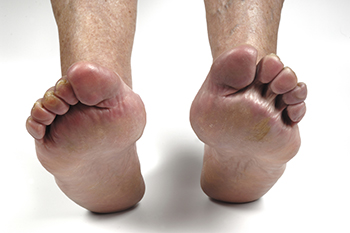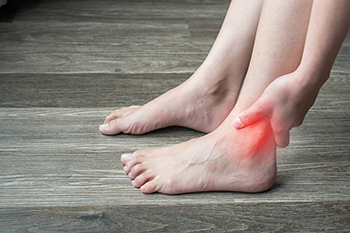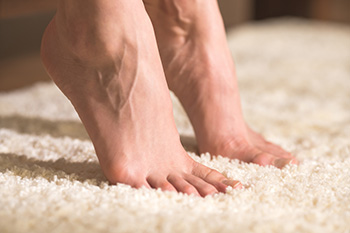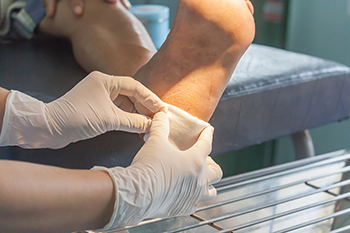
Rheumatoid arthritis, or RA, is an inflammatory condition that commonly affects the joints, including those in the feet. People with RA often experience symptoms such as pain, swelling, and stiffness in the smaller joints of the toes and forefoot. Over time, if not properly managed, this can lead to joint deformities, nodules, and even altered foot shape. Foot issues from rheumatoid arthritis can affect mobility and quality of life, making it harder to perform daily activities. A podiatrist can help alleviate discomfort by prescribing custom orthotics, addressing inflammation, and offering treatments to slow joint damage. They can also address associated skin problems, like corns and calluses, which often develop from pressure points on the feet. Early intervention and continuous care are essential to prevent further complications. If you have foot pain related to rheumatoid arthritis, it is suggested that you make an appointment with a podiatrist for an exam, diagnosis, and treatment options.
Because RA affects more than just your joints, including the joints in your feet and ankles, it is important to seek early diagnosis from your podiatrist if you feel like the pain in your feet might be caused by RA. For more information, contact one of our podiatrists of Carolina Foot & Ankle Specialists. Our doctors will assist you with all of your podiatric concerns.
What Is Rheumatoid Arthritis?
Rheumatoid Arthritis (RA) is an autoimmune disorder in which the body’s own immune system attacks the membranes surrounding the joints. Inflammation of the lining and eventually the destruction of the joint’s cartilage and bone occur, causing severe pain and immobility.
Rheumatoid Arthritis of the Feet
Although RA usually attacks multiple bones and joints throughout the entire body, almost 90 percent of cases result in pain in the foot or ankle area.
Symptoms
- Swelling and pain in the feet
- Stiffness in the feet
- Pain on the ball or sole of feet
- Joint shift and deformation
Diagnosis
Quick diagnosis of RA in the feet is important so that the podiatrist can treat the area effectively. Your doctor will ask you about your medical history, occupation, and lifestyle to determine the origin of the condition. Rheumatoid Factor tests help to determine if someone is affected by the disease.
If you have any questions please feel free to contact our offices located in Mount Pleasant and Charleston, SC . We offer the newest diagnostic and treatment technologies for all your foot and ankle needs.






